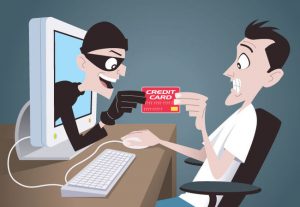 Everyone needs extra cash from time to time. There are even times when things feel desperate. Applying for online loans might seem like a good idea – a quick fix – but they are often a source of trouble. Loans are offered by everyone from legitimate banks to credit cards to cash advance services. Due diligence and giving out the right information may save you from theft, fraud, or worse.
Everyone needs extra cash from time to time. There are even times when things feel desperate. Applying for online loans might seem like a good idea – a quick fix – but they are often a source of trouble. Loans are offered by everyone from legitimate banks to credit cards to cash advance services. Due diligence and giving out the right information may save you from theft, fraud, or worse.
Red Flags
Red flags can be obvious, but may not be recognized by uneducated consumers. Before applying for a loan, check out the company thoroughly to make sure it’s legitimate. The Better Business Bureau is a good place to start. Research reviews from former and current customers. Check scam websites.
Seven Signs:
- The lender doesn’t request credit history. The first thing a reliable lender should ask for is your credit history. Real lenders want to know they are making a calculated risk. Before applying, you should have your credit history in front of you. Credit history is issued through three major credit bureaus: Experian, Equifax, and TransUnion. If you aren’t required to give your credit history, it’s a scam. They are interested in collecting high fees from late payments.
- The lender isn’t registered. The Federal Trade Commission (FTC) requires registration for all lenders and loan brokers in the state(s) they conduct business. Verify the lender is legally permitted to process your loan.
- The lender requires a prepaid debit card. Some sites will require a prepaid card as collateral or insurance. Prepaid cards are untraceable and nonrefundable, so the scammers keep the money free and clear.
- The lender approaches you. Legitimate lenders advertise, but you should be suspicious of one that calls or shows up at your door. If you receive such a call do a free phone trace on iPhone to verify the number of the caller.
- Their website isn’t secure. If your antivirus or firewall software doesn’t catch it, you can tell a website is secure if it features a padlock symbol next to the URL. Also, a secure site will have an address with https://www… Instead of the typical http://www.
- The lender has no address. All banks and loan brokers have a physical address. Use Google Maps to pinpoint their location.
- The lender wants immediate action. Don’t give in to limited time offers, even if the lender promises to send the money the next day.
Reporting a Fraud
If you suspect you have been the victim of a fraud or identity theft due to an online loan offer, contact the Federal Bureau of Investigation Internet Crime Complaint Center.


